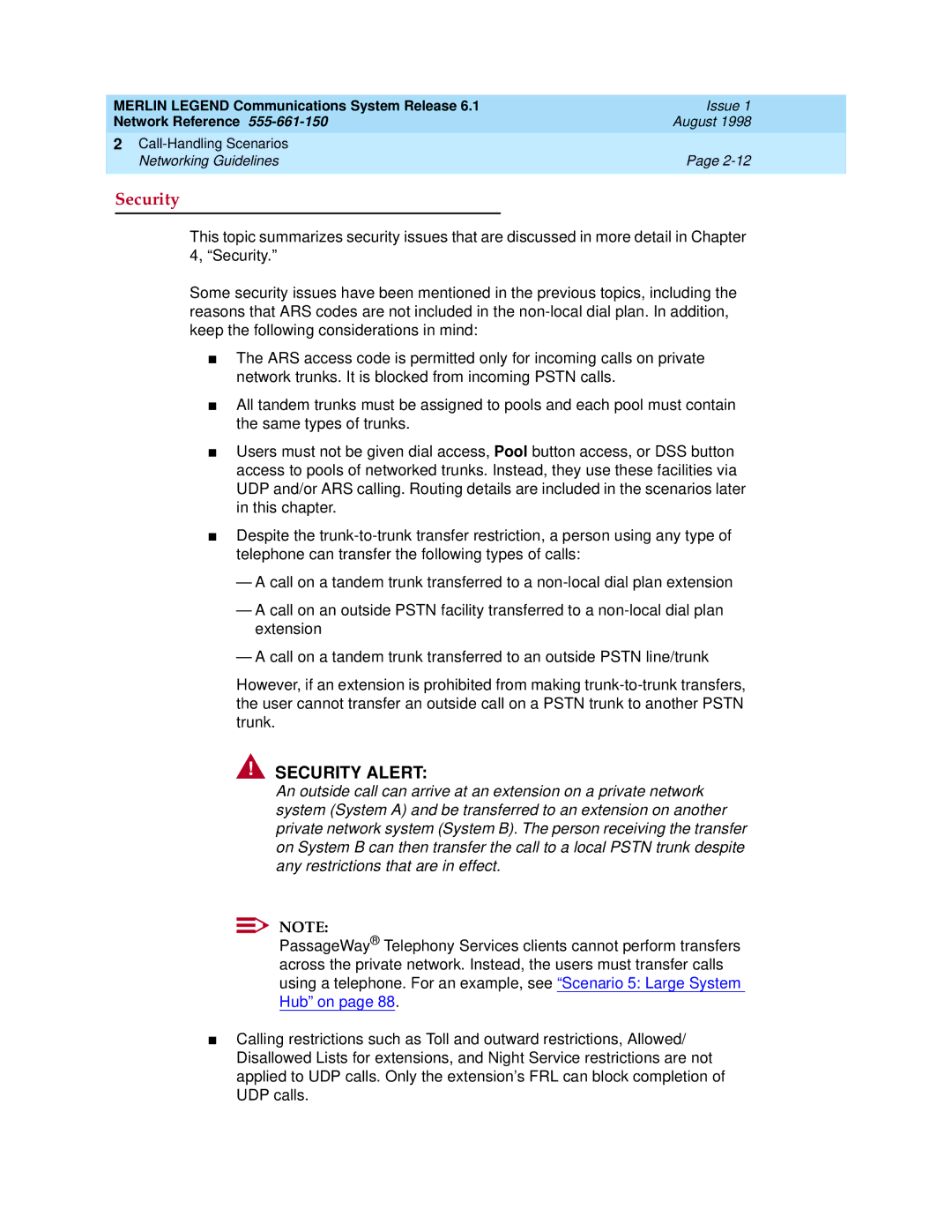
MERLIN LEGEND Communications System Release 6.1 | Issue 1 |
Network Reference | August 1998 |
|
|
2Call-Handling Scenarios
Networking Guidelines | Page |
Security | 2 |
|
|
This topic summarizes security issues that are discussed in more detail in Chapter 4, “Security.”
Some security issues have been mentioned in the previous topics, including the reasons that ARS codes are not included in the
■The ARS access code is permitted only for incoming calls on private network trunks. It is blocked from incoming PSTN calls.
■All tandem trunks must be assigned to pools and each pool must contain the same types of trunks.
■Users must not be given dial access, Pool button access, or DSS button access to pools of networked trunks. Instead, they use these facilities via UDP and/or ARS calling. Routing details are included in the scenarios later in this chapter.
■Despite the
—A call on a tandem trunk transferred to a
—A call on an outside PSTN facility transferred to a
—A call on a tandem trunk transferred to an outside PSTN line/trunk
However, if an extension is prohibited from making
!SECURITYlALERT:
An outside call can arrive at an extension on a private network system (System A) and be transferred to an extension on another private network system (System B). The person receiving the transfer on System B can then transfer the call to a local PSTN trunk despite any restrictions that are in effect.
NOTE:
PassageWay®Telephony Services clients cannot perform transfers across the private network. Instead, the users must transfer calls using a telephone. For an example, see “Scenario 5: Large System Hub” on page 88.
■Calling restrictions such as Toll and outward restrictions, Allowed/ Disallowed Lists for extensions, and Night Service restrictions are not applied to UDP calls. Only the extension’s FRL can block completion of UDP calls.
